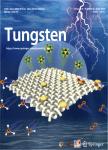The intrinsic strength prediction by machine learning for refractory high entropy alloys
作者机构:Kazuo Inamori School of EngineeringAlfred UniversityAlfredNY14802USA
出 版 物:《钨科技(英文)》 (Tungsten)
年 卷 期:2023年第5卷第4期
页 面:531-538页
核心收录:
学科分类:08[工学] 081104[工学-模式识别与智能系统] 0805[工学-材料科学与工程(可授工学、理学学位)] 080502[工学-材料学] 0714[理学-统计学(可授理学、经济学学位)] 0811[工学-控制科学与工程] 0701[理学-数学] 0812[工学-计算机科学与技术(可授工学、理学学位)]
主 题:Refractory high entropy alloys Solid solution strengthening Machine learning Lattice distortion Heat of fusion
摘 要:Herein,we trained machine learning(ML)model to quickly and accurately conduct the strength prediction of refractory high entropy alloys(RHEAs)matrix.Gradient Boosting(GB)regression model shows an outstanding performance against other ML models.In addition,the heat of fusion and atomic size difference is shown to be paramount to the strength of the high entropy alloys(HEAs)matrix.In addition,we discussed the contribution of each feature to the solid solution strengthening(SSS)of HE As.The excellent predictive accuracy shows that the GB model can be efficient and reliable for the design of RHEAs with desired strength.



